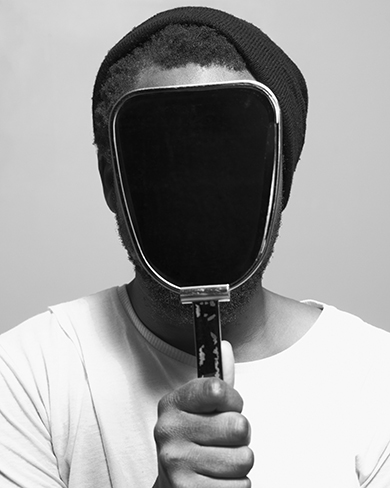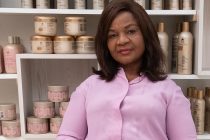There are TV moments, moments I’m always reminded of.
First, flash back almost 25 years to a moment that happened on American television. (It came to Sweden a couple of years later and I remember the first time I saw the scene) …
They give her ‘the look’ that tells you that you don’t belong here, in this space.
A black woman goes into a dance audition, two white women look down at her. If you’re a person of color, you probably know what look I am talking about. They give her ‘the look’ that tells you that you don’t belong here, in this space. The black woman stands tall. The white women ask her: ‘Are you back to make a fool out of yourself?’ The black woman answers confidently, no. She makes sure that they know that she is not scared. The instructor chooses the black woman and three other people to do the dance routine. She takes off the jacket that covers her, her armor against the world, and reveals the light pink leotard she is wearing. She is ready. The music begins playing. She dances. And she smiles. She’s got this!
She’s got this!
When this black woman, Vivian Banks, danced on the TV-show “The Fresh Prince of Bel-Air”, I was hooked. Not because she was an excellent dancer (she totally is). I reveled in the fact that she was unapologetically black. I had never seen that. I didn’t believe that it was possible. How in awe I was of this black woman standing tall and proud, just breathing, on TV. But here she was, this black woman, feeling herself, way before Beyoncé and Nicki Minaj entered the scene.
I grew up in the 90s with three older siblings. That meant that my days were filled with schoolwork, afternoon activities and such, but also, most importantly, TV. It was through TV that I found my salvation and that would help shape my identity as a black man. I remember watching “The Fresh Prince” and feeling like ‘these are my people.’ Mind you, the show has a lot of problematic content such as sexism, homophobia, afrophobia and the list goes on. But it did give some value to many in my generation.
Aunt Viv (played by the actress Janet Hubert in seasons 1-3) reminded me of the women in my family that no one was talking about. Like Aunt Viv, there were strong women who had faced countless obstacles in their lives, but still stood strong. Uncle Phil was the father figure I dreamed about, the guiding force that had seen into the abyss of humanity but still had warmth inside of him. The kids that were, to a certain degree, my only version of a carefree black kid. Will, Hilary, Carlton, Ashley. They were able to be whatever they wanted to be. I clung to this family as if they were my own, constantly imagining myself living in the same space and being one of the fam. These were my people.
Flash-forward to a recent, unusually sunny summer evening in Stockholm, Sweden …
A choir of people from all different backgrounds is preparing to sing. The air is buzzing with energy. It is a buzz all around them. In about 2 minutes, they are going to perform in front of roughly 8,000 people sitting around the stage and millions watching on TV.
There is a black woman in the group, Doreen. She is going to sing a solo. She takes the microphone. She jokes around with the rest of the choir, bouncing up and down. With the rest of the choir, she enters the stage and looks out at the audience. The same thing that I saw in Aunt Viv all those years ago happens in this moment as well.
She breathes as her name is called. The music begins playing. And then she opens her mouth.
She’s got this!
What do these two moments have in common? Empowerment.
Recently, I’ve been reflecting on defining moments in my life and the people that have affected me. The fictional character, Vivian Banks, a dark-skinned black woman, was one of the many people that set me on a path to self-discovery. There she was, a black woman, who was celebrated across borders. She was lauded for being who she was. It was amazing!
Vivian Banks sought out to teach those around her, to be a mother, to be a wife, to be angry, to be happy, to be sassy … to be everything! She was one of those flawed yet real people I saw all too little of on television growing up, which is why she still matters.
And from her, I got this!
Aunt Viv helped shape the realities of a generation of young men and women. To be able to see a powerful woman, stand tall and being praised for being herself … for owning it … for having it. That is everything! She got this! And from her, I got this!
So to you, Aunt Viv, thank you. And to you Doreen, and to all the other black women out there, struggling and working hard every day to just exist, thank you. You’re an inspiration. You are everything!
— Paulo Saka
photo: Andrea Davis Kronlund





